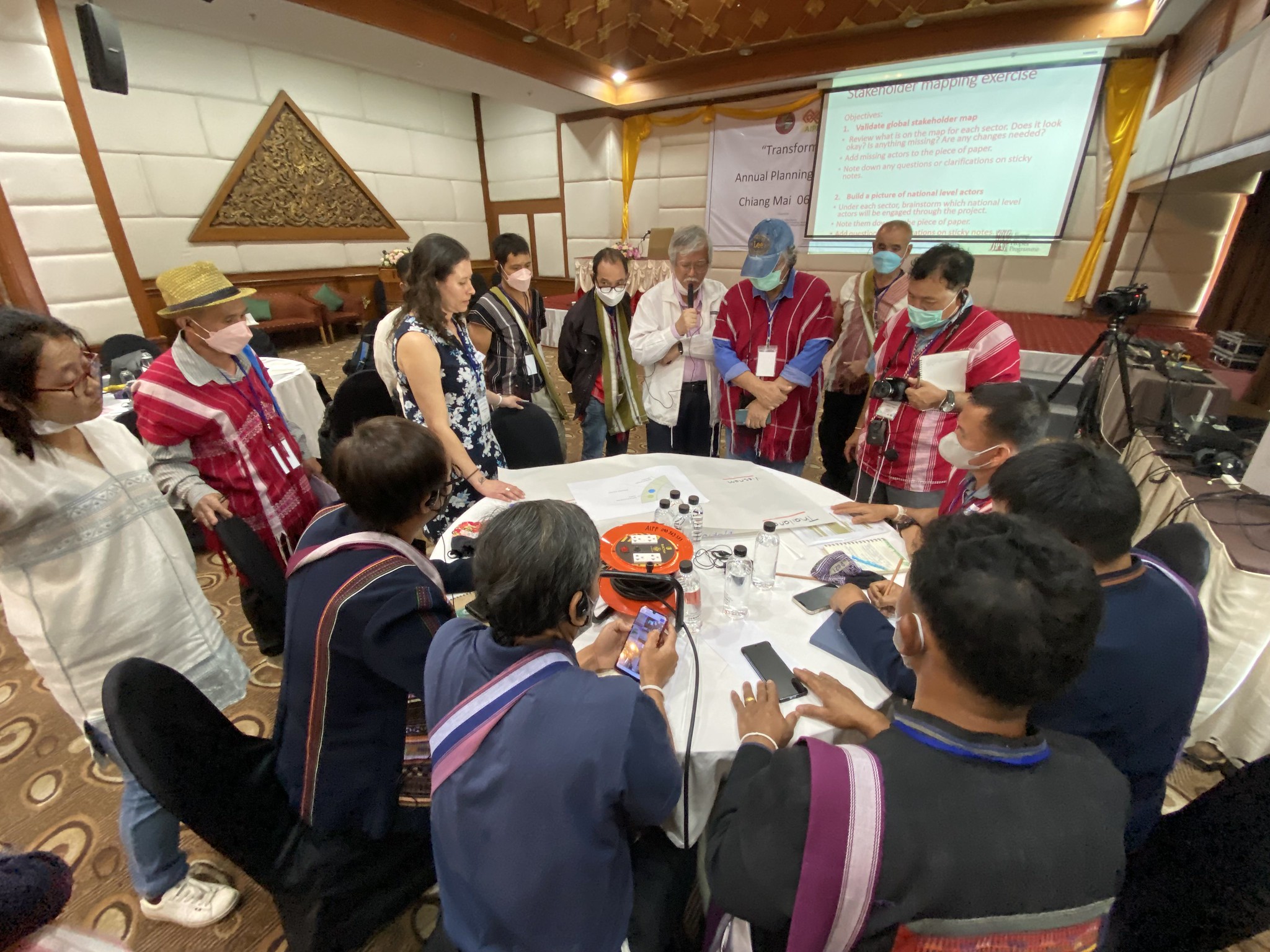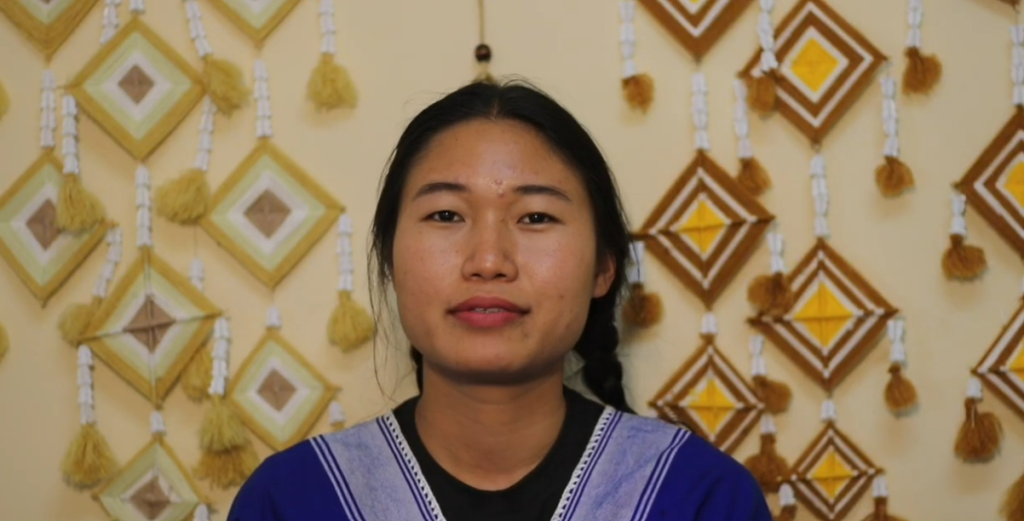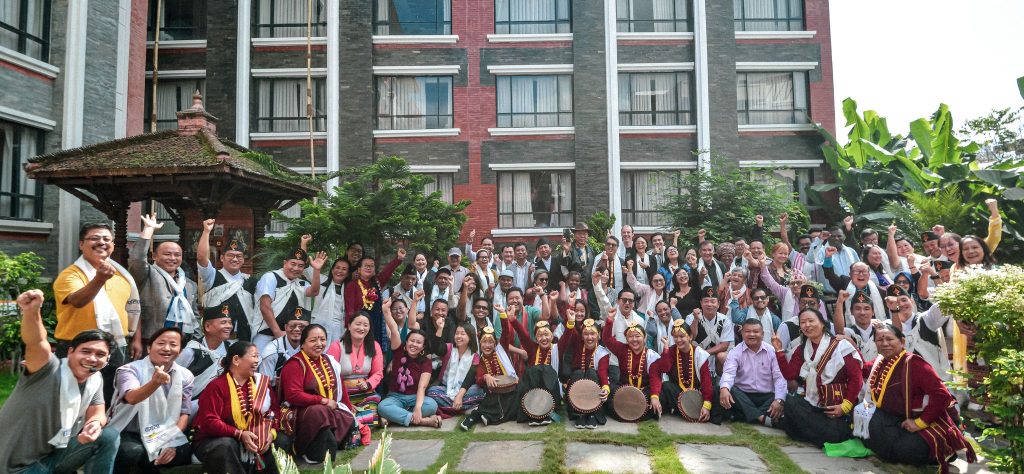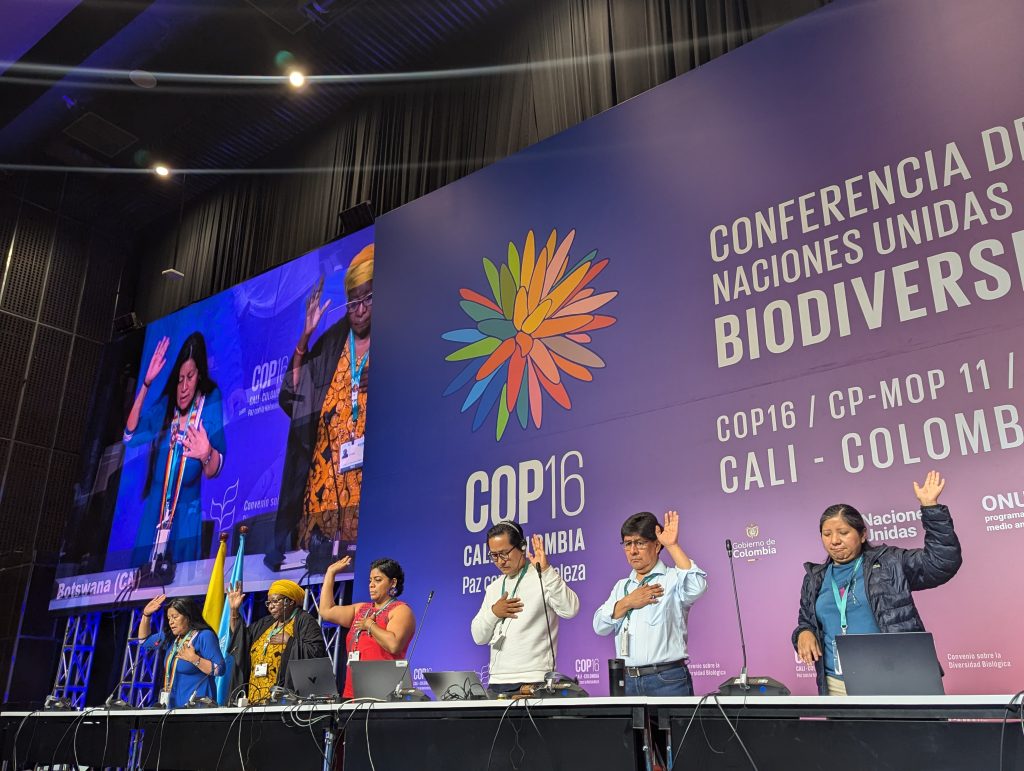The Pgakenyaw Association for Sustainable Development (PASD) is an organisation established in 2009 by Pga k’nyau (Karen) community leaders, NGOs, and concerned academics. It works to revitalise traditional learning processes and encourage the transmission of traditional knowledge to the new generation.
It aims at preserving traditional culture and local knowledge based on human rights principles. PASD is committed to the principle of respect for humanity, human dignity and the human rights of local people in determining their life and carrying out culture-based community development.
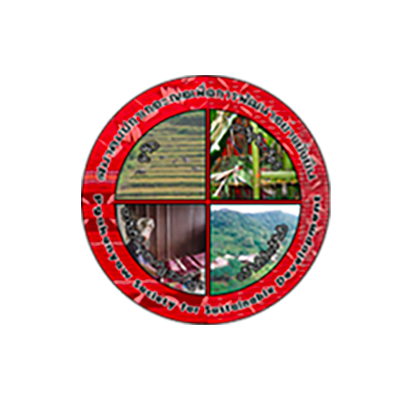
Country: Thailand
Website: pasdthai.org/
Facebook: PASD Thailand
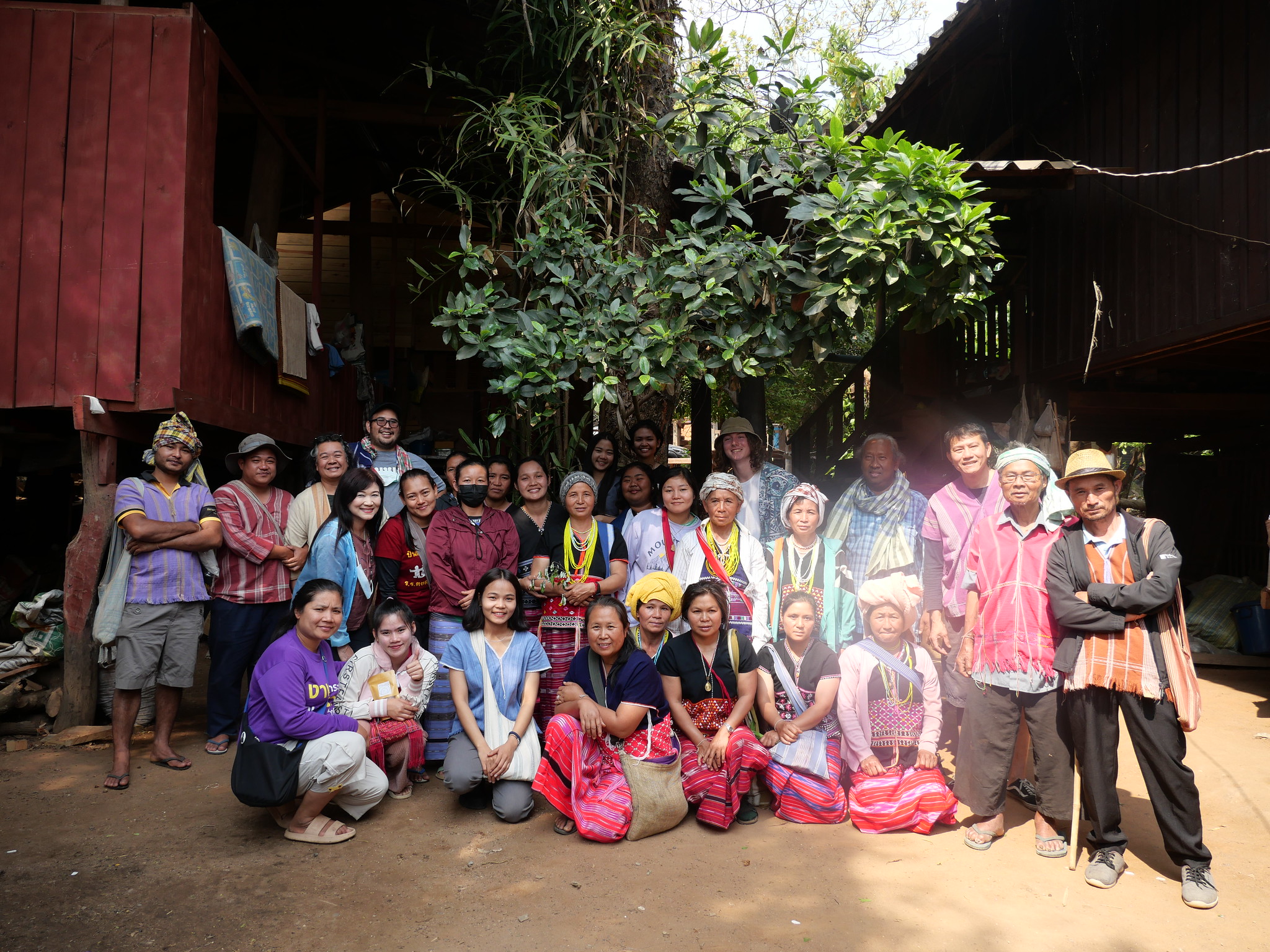
Women’s stage at Ban Huai E Kang. Photo by Arisa / PASD
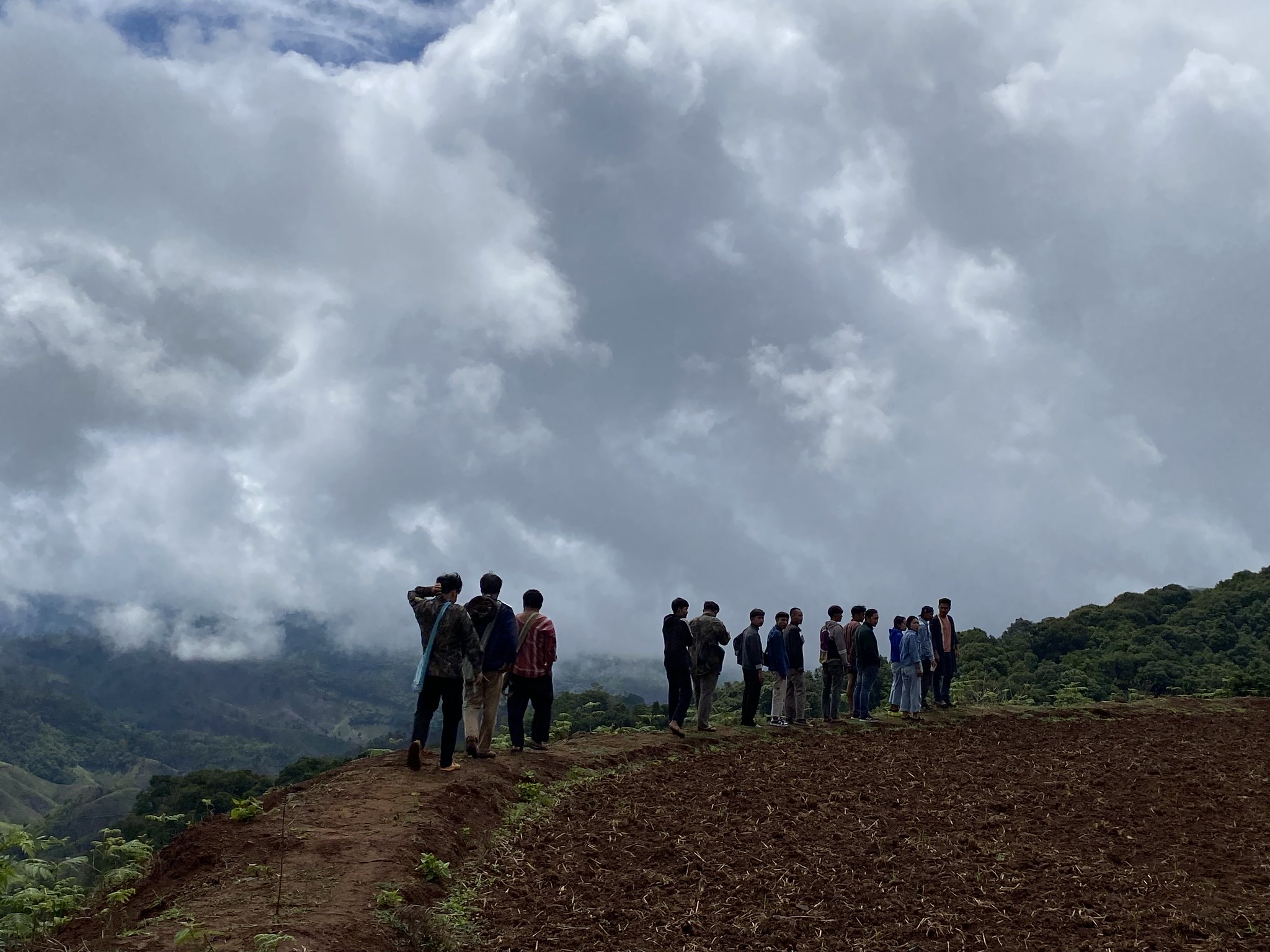
Khun Tee explains about the dividing of arable areas in each section. Photo by Sunaree / PASD
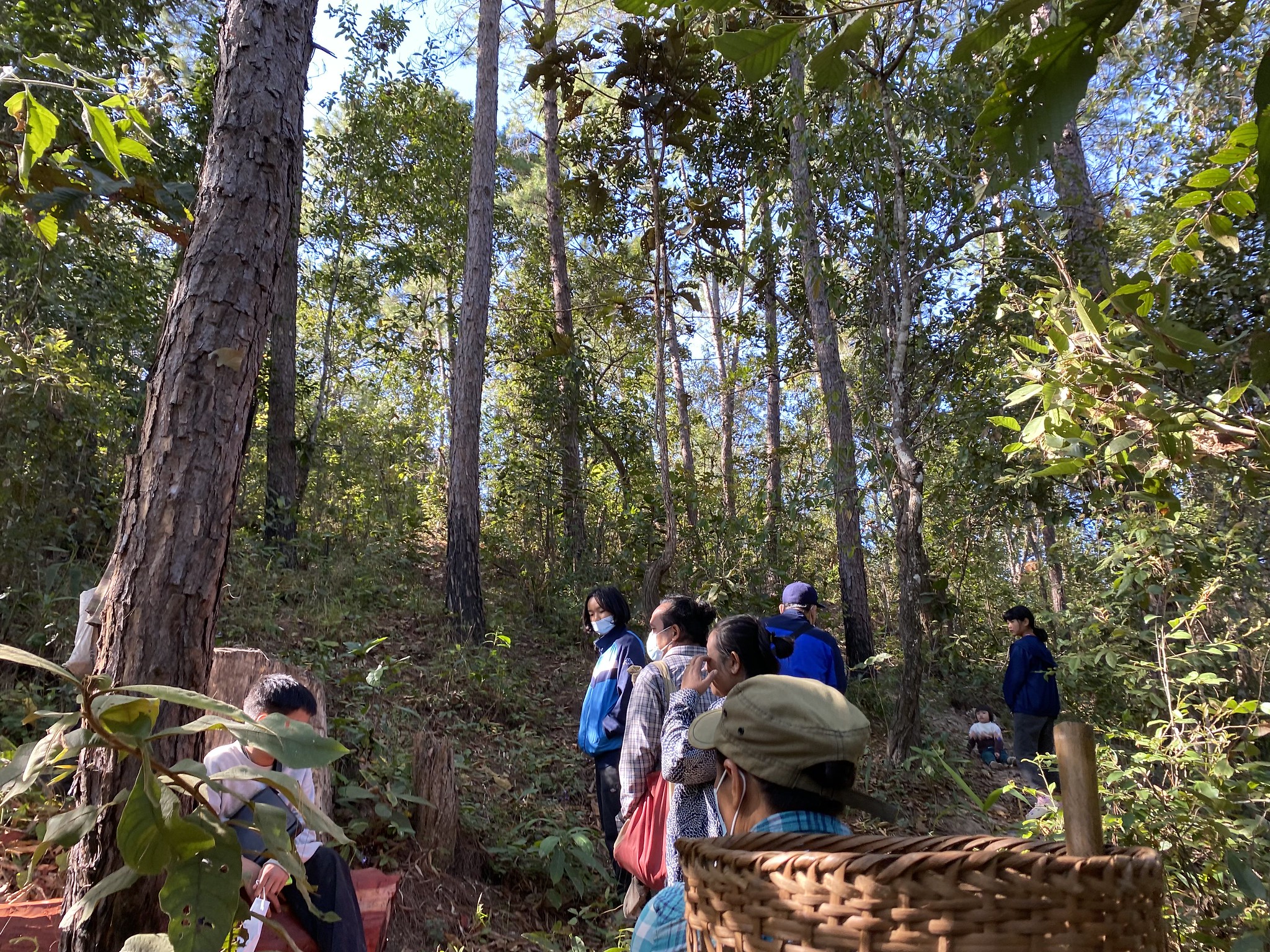
Studying and exploring the paths of Huai E Kang Women’s forest. Photo by Sunaree / PASD
Dashed line
Main areas of work
- Strengthening capacity of Community Organization and Network
- Traditional based Natural resource management
- Traditional based Sustainable Agriculture
- Sustainable Economy (Community Social Enterprise)
- Culture-based Education and Intergenerational Transmission of Traditional Knowledge
- Community rights and Land Rights
- Participatory Action Research for Sustainable Development
- Advocacy and Communication
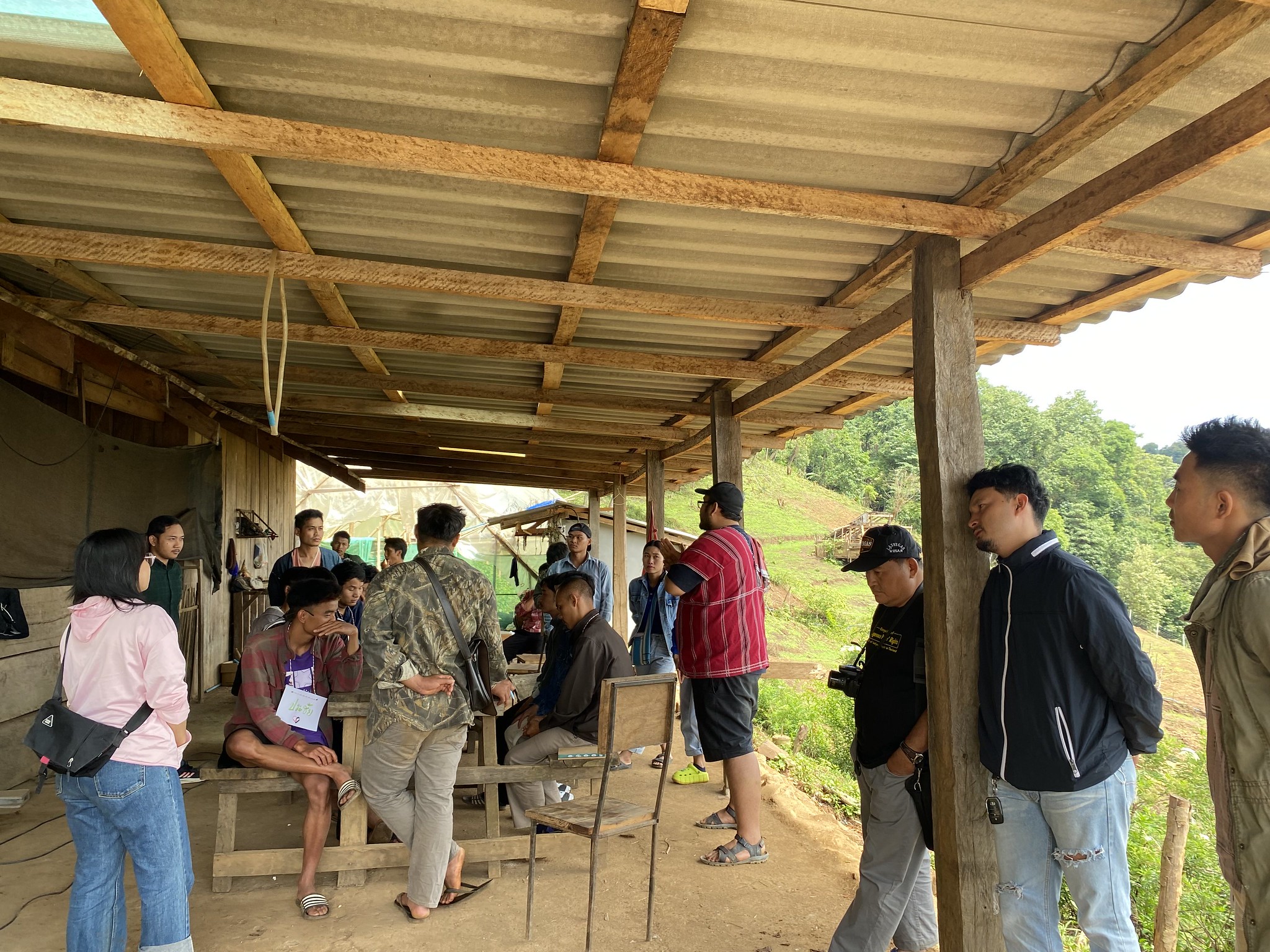
Organized a youth forum in Mae Suek sub-district in the association’s operating area. Photo by Sunaree / PASD
Dashed line
Focus of work in the Transformative Pathways project
PASD coordinates implementation of the project in 7 official (No.) communities (25 Clusters) in one Sub District of Pgaz K’Nyau (Karen) Communities in Mae Suk Sub–district, Mae Chaem District in Chiang Mai Province, northern Thailand.
